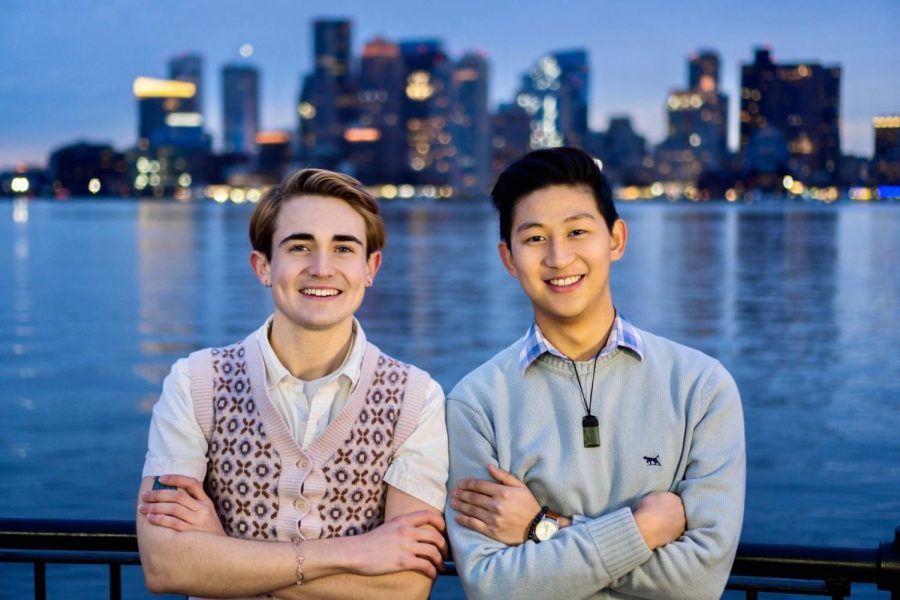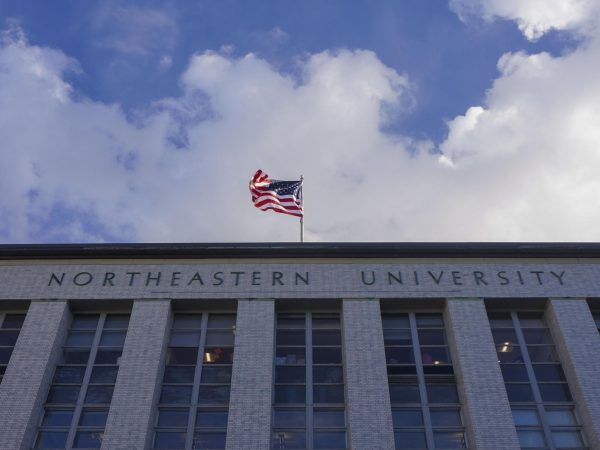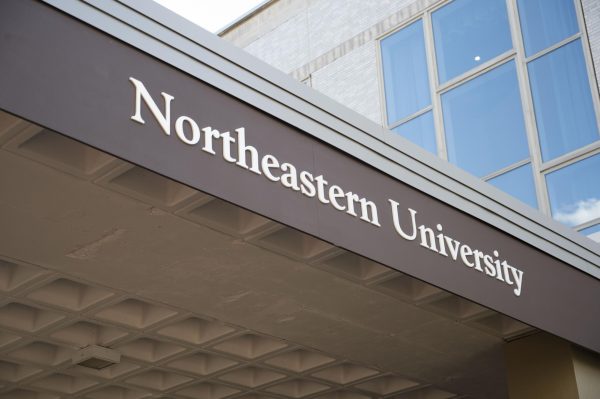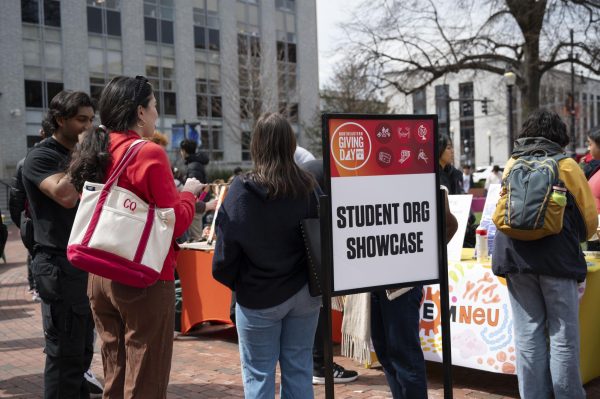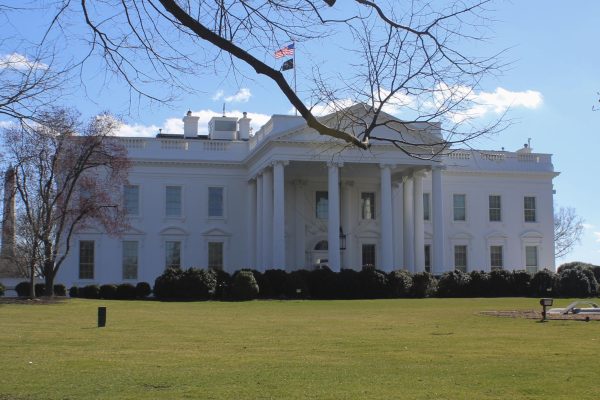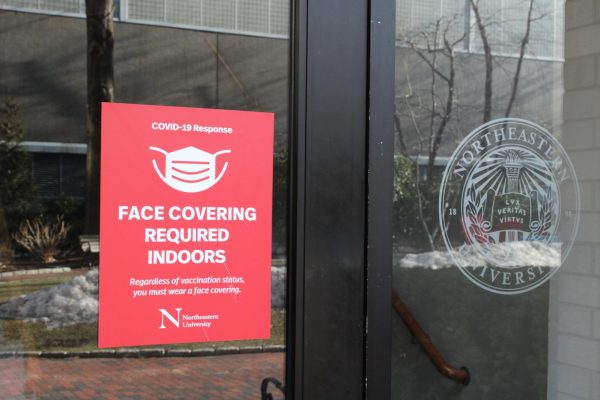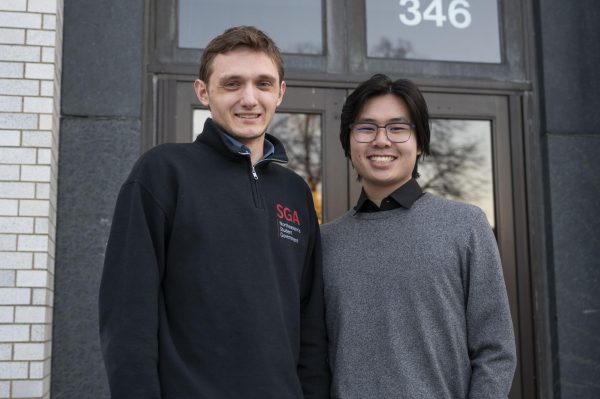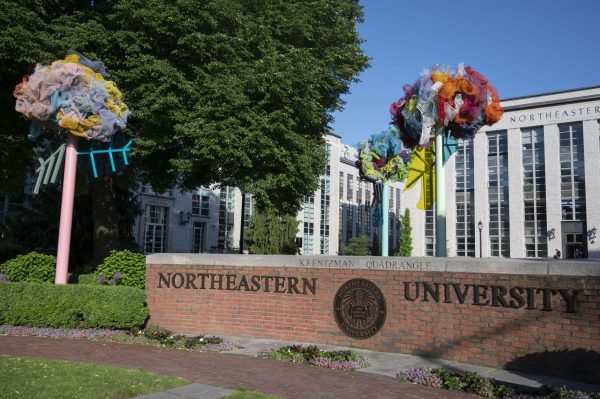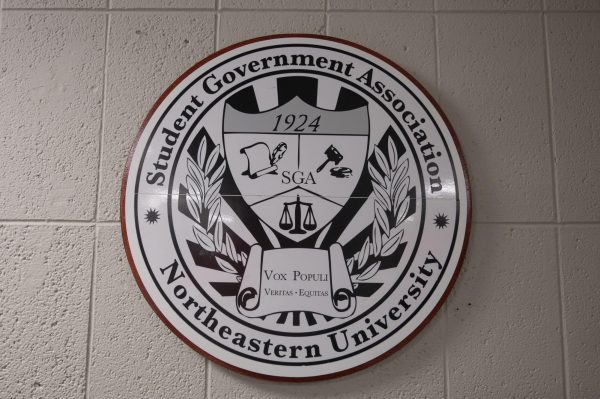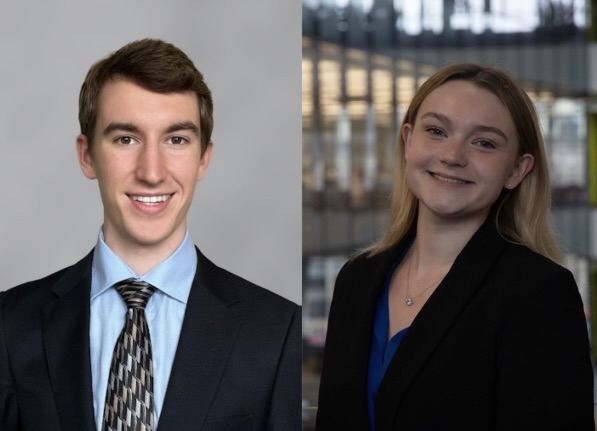Q&A: CLEAN slate campaign discusses major policy goals, reforms in SGA in presidential bid
Matty Coleman and Charlie Zhang (left to right), who ran for Executive Vice President and President of SGA in the spring 2023 semester. Coleman announced they were stepping down Monday due to personal reasons.
Two slates are vying for the position of president and executive vice president in the upcoming Student Government Association, or SGA, elections, in which students will begin voting March 20 and continue until March 26.
Kathan Ramnath, a third-year finance and economics combined major, is running for President with Giovanni Falco, a second-year criminal justice and political science combined major, as his Executive Vice President, or EVP. Charlie Zhang, a third-year sociology and international business combined major, is running for President with Matty Coleman, a third-year psychology major as his EVP in the CLEAN Slate Campaign.
In an interview with the News, Zhang and Coleman discussed their priorities, major policy goals and reforms they would pursue within the SGA if they were to be elected. This is the first of a two-part Q&A The News conducted with both slates.
Responses have been edited for length and clarity.
HN: Can you tell me more about yourselves?
Zhang: I’m a third-year sociology and international business major. As a student from New Zealand, I very quickly realized that the American education system was very different from what I was accustomed to. So as a first-year, I very much felt like I was uncertain of where to turn to for guidance, mostly due to my lack of familiarity and a totally different academic and cultural environment. That’s how I kind of got involved in SGA, where there was sort of a community forming that allowed me to learn more about the university, collaborate with all sorts of other clubs and people and gain insight into what college life is like. Right now I’m the chair of the Advisory Board. I’m the VP for Student Services at Northeastern, which covers just about every physical service you can think of, like gym space, housing and dining. I’m also on the board for CASE and I’m a volunteer for Northeastern Mutual Aid for their Wednesday mobile food pantries.
Coleman: My name’s Matty. I use any pronouns. I identify as non-binary, so I do prefer they/them but I’m up for whatever. I’m a third-year as well. I am a psychology major with a minor in business administration. My personal motive for getting involved in SGA in the first place was getting active on campus in terms of advocacy. Ultimately, my motive for getting involved in this campaign is that when I was in high school, I experienced what effectively amounted to a mental health crisis and I didn’t really realize because I grew up in the suburbs. That made me realize that having access to a lot of mental health resources was very much a privilege and very much not something that’s a baseline. Coming into university, I noticed a lack of accessibility and awareness within Northeastern. A lot of my advocacy, which I’ve done through wellness clubs such as Active Minds and Lean On Me as well as via the SGA, has had to do with addressing these inequities from Northeastern’s end.
I’m a delegate in SGA, but that’s informal. I’m the current marketing coordinator for Lean On Me at Northeastern, which is a peer-to-peer non-crisis mental health support hotline. I’m the current student chair of the new Holistic Wellness Working Group, which is getting a bunch of different students together to talk directly with admin about resource inequities and improvement levels and such.
HN: What would your priorities be as president and EVP?
Zhang: We’re going to keep it CLEAN. We’re going to correct club funding, which is going to be streamlining access to funding applications, increasing budgeting assistance for clubs and reinventing defunct systems in order to contact administration. We’re creating a budgeting and club support hotline, we’re working with the Finance Board to increase transparency, accountability and equity of funding. Our second one is lowering living costs, which is the “L” in CLEAN. We’re examining more affordable housing options in tandem with housing services both on and off campus. Secondly, [we are] holding dining services accountable for alleviating student food insecurity by restructuring the meal plans so that they’re more affordable and more flexible. We also want to install a permanent food pantry on campus.
Coleman: The “E” that we have stands for “elevate equity and inclusion,” and we plan to do that by promoting the establishment of a women’s center at Northeastern and also implementing formally recognized restorative justice practices in student conflict resolution. That is something that we are elevating to the top of the list, like implementing greater diversity, equity and inclusion training, especially among leadership. The “A” stands for “accountable administration,” which means making sure admin meets student demands through enhancing existing student-run boards and advisory systems. We want to cover all the bases of public safety, wellness, food, housing and campus planning. The “N” is “normalized wellness and mental health care.” We’re going to do that via dialogue with UHC, DRC and OPEN to ensure that there are a variety of student voices present in addressing mental health care at Northeastern and also in addressing policing and mental health care, because there’s a big problem in lack of trauma informed care.
HN: Where do you see room for improvement in SGA and its process?
Coleman: I think that SGA has a very big culture problem, and I think that’s the forefront of where barriers to entry exist in the SGA. I think SGA can be functionally productive as an institution, but I don’t think that we’re super welcoming because we kind of give off this aura of professionalism and seriousness. Granted, we deal with very serious things, but students deal with seriousness in every aspect of their lives. The last thing that they want to do is come into this space where they have to be serious all over again. There are ways to address issues while having a good time, spicing it up, adding some flair, enjoying yourself. I think that we need to reorient the image of SGA to make it less work and more reward. The reward should be “I got this done and I enjoyed myself while doing it.”
Zhang: We always talk about Northeastern’s shuffle of administrators and not being able to ever get anything done. And I think very much SGA has its own shuffle like that. We have a lot of pie in the sky ideas that include things that students are working on, but over a number of years they just forget about them. Or we graduate. We’re only here for a certain amount of years, which is why it’s so important for Matty and me to emphasize that it’s not really about us. Our ideas are just as important as everybody else’s. We want to be able to create those structures that students now and in the future can utilize to get their passions and projects done. Our metric that we want to hold ourselves accountable to is how many students are going to be able to be involved thanks to the pathways that we make.
HN: What concrete steps would you take to accomplish these things?
Zhang: We’re in consistent talks with the administration about how we are restructuring the meal plans right now for next year to make them more affordable and more flexible for students. We’re also piloting a campus planning advisory board, which addresses campus planning issues. One big one is the housing crisis that we all face on campus. We want to support sustainable development and prioritize how students will have a say in the university’s development over the next 10 years. Another thing we’re working on is addressing the lack of transparency in public safety notifications. We are working with the NUPD Advisory Board to promote this infrastructure to keep students in the know so that we don’t have to have three bomb threats in the space of a month with very little to no information about any of them. Lastly, we also have a campus recreation task force, which is working on a subsidy program to reduce gym density on campus, because the fact of the matter is we’re not getting any new space any time soon. We wrote a piece of referenda that we got on the student body ballot, which will ask students whether they support a subsidy program or not as a way to alleviate gym density. We also have a referendum that we wrote to promote the SafeZone app and the ways that it could better have transparency and ease of use for the student body.
Coleman: A big thing for me is this Holistic Wellness Working Group. That board is all about bringing together students from a variety of different walks of life. We have all these different persons with different life experiences coming to the table to talk directly with university administrations about the issues that they see are most pertinent to their community and their constituencies with regards to the field of mental health. Another avenue for me has been via Lean On Me. A lot of the work that we do is normalizing the use of it and working to make people aware and reach out about things before it elevates to that crisis situation.
HN: Why should students vote for your slate?
Zhang: We want to meet all of our goals — correcting club funding, lowering living costs, elevating equity and inclusion and normalizing mental health care — within our year. But I think the big difference between us and the other slate is that these are things we are already working on, whereas their goals are things that they want to do. We aren’t sharing anything new that people don’t already know that Matty and I are super passionate about, and I think our team really does have the tool kit — the skills, knowledge and experience to make a positive impact on the student body.
We’re already working with so many organizations. We’re experienced in working with clubs. There are a whole lot of services that Northeastern provides. But historically, there’s not been that pathway for students to directly talk to the admin responsible for making those decisions. We have made those relationships over the past three years.
Coleman: An important part of our value proposition as a slate is the fact that we’re trying to demonstrate longevity in all of our goals and initiatives. We care about the tangible things that we can accomplish by the end of our term, but we want them to be things that people have infrastructures to elaborate upon. And we have plans in place and are already working on ways to implement those infrastructures so that future students, well after we’re gone, can continue to fine tune all these things that we plan to do.
Charlie and I are best friends. We have an especially good synergy because of that. I think that synergy is really unique and I think it’s going to be helpful in implementing that sort of cultural change I was talking about earlier because Charlie and I know how to have fun with each other. We know how to take each other less seriously, and I think that’s something that this organization needs a little injection of if it’s going to be more welcoming to more people.
We have our feet in a lot of doors. We’re very well connected, and we’re very great delegators, so we can delegate to those other people that have connections and do them with passion to ramp up that sort of involvement.
More information on the CLEAN slate campaign can be found here. They can be found on Instagram as @clean.slate.nu.


